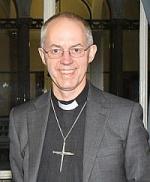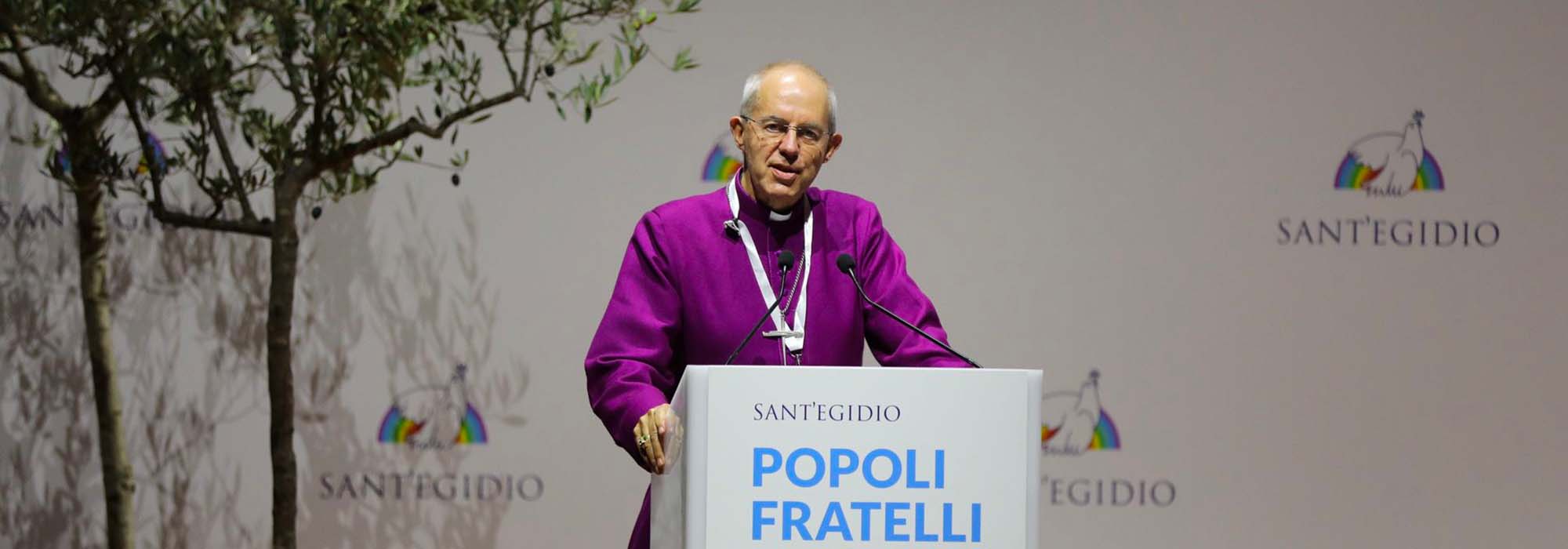
There is a painting, by an English artist called George Watts, called ‘After The Deluge’. In it, a huge sun bursts through the clouds. It is meant to depict a scene from Noah’s Flood, the day Noah opens the window to find the flood is over and glimpse a return to normality. Crucially, it is a sea scape – the water is still there, but the light of re-creation dominates. God’s hand is seen so clearly amid the hope and chaos.
We have truly faced the deluge, the flooding away of all we knew and all that felt familiar. The impact of the pandemic will be felt for decades. It will, of course, be a seminal moment in modern epidemiology, but many of us will be affected more obviously through our daily lives in our memory, in culture, in travel - even in our working habits and how we interact with others.
These huge events and their aftershocks will inevitably shape not only us as individuals, but our communities and countries for decades to come.
A number of the effects have been felt immediately - massively and often painfully. As the bricks of ‘normality’ all came crashing down, our sense of with our fragility, grief and mortality was felt, for many of us like never before. The idols of our age - whether health or science or prosperity or any of the other distractions we can fall into the trap of assuming are omnipotent - were toppled and revealed themselves as powerless.
When everything has fallen apart, we can decide how to rebuild it. In the Bible, the first letter of Peter describes people as ‘living stones…being built into a spiritual house’. Each of us make up these living stones that, rebuilt, will transform the world to the glory of God and the friendship of each other.
In our separation, we have felt keenly the importance of fellowship – I feel the joy of assembling together today, following so much time apart. Let’s not lose sight of the importance of this friendship and cooperation, the ties that bind us together which go deeper than background, race, class, gender, party politics or anything else that might divide us.
In the face of one common threat, people and local communities came together to help and serve one another, but we have also seen the pandemic’s divisive effects. The issues of vaccine equity and unequal access to health services show all too clearly how capable we still are of greed, of forsaking our neighbour, even when it will inevitably cost us dearly in the future - the COVID-19 Pandemic exposed a deep desire to preserve ourselves, even though most people accepted that the pandemic cannot be halted anywhere until it has been halted everywhere.
Both nationally and globally, the pandemic has stripped bare the paper that covered the cracks in our society. It revealed the places where inequality and injustice have made their home in the darkness of ignorance and selfishness. Equally though, it has revealed unexpected strength – our resilience, our ability to adapt and innovate in the face of great and sudden change.
And this really is a time of extraordinary and rapid change, which has been accelerated by the pandemic. We have seen change scientists did not expect to happen for another one hundred years, change that seemed like science fiction only a decade or two ago. Autonomous forms of transport are now practical, not only for vehicles but also for ships and aircraft. Artificial Intelligence is advancing very rapidly, and raises existential questions for people regarding their identity, purpose and what it means to be human. Communications are unrecognizable, hugely powerful, and immensely subversive of existing orders and structures of many societies and institutions. Medicine is advancing ever more rapidly as the decoding of the human genome begins to bear fruit. For most of us, the impact of these changes will be revolutionary – for jobs, development and life expectancy and quality, as well as for the terrible possibilities of war or the wonderful gifts of peace.
At the same time the planet groans under the weight of the peoples and economies that it sustains. Social tensions grow as traditional societies and structures either resist or seek to adapt to change. We face multiple paradoxes - We are more connected, but more alone. We live in a time of unimaginable wealth, but desperate poverty. We are more climate aware than ever, but we are only just beginning to take real action against climate change. This is a tide that is beginning to turn as churches, governments and people start to understand the deep existential threat that climate change poses, and indeed the impact it is already making on the lives of people around the world.
These issues are not unrelated: they are linked by the fact that we have not loved and valued all people equally in this world. We do not value the different gifts that God has given us. We have not seen the face of God in every single person. We have not loved our neighbour as ourselves.
The opportunity lies before us, at this time in history unlike anything many of us will ever have experienced, to seize this moment of great change and shape it so that our world serves those who are poor and marginalised, so that we care for our environment, so that we are drawn ever closer together and not pushed apart by false promises and idols.
Now we must find fresh strength and passionate commitment to imagine ourselves afresh during such change. To reimagine anything in such fast-shifting contexts and with so many impulses and pressures requires us to be anchored in constant and flexible values. It has happened before, and there is every reason to suppose that we will manage with great benefit to the world. But it does not happen by accident.
We will need great imagination to grasp this moment, leadership at every level of society and courage to stand for what is right, not just what may seem easy. We will, most of all, need to work together to face the common enemies of climate change, injustice, and inequality. Matthew 12:25 reads: ‘Every kingdom divided against itself is brought to desolation, and every city or house divided against itself will not stand.’ A world that rips itself apart in greed, in ignorance, in cruelty and selfishness and disregard for others will not stand. A world where the living stones cleave together to create an unbreakable structure will endure.
This does not mean we have to agree on everything! This is why we have politics, to engage well on the issues which define how we live and how we live with each other. But it does mean that where we disagree, we are called to disagree well and love one another across division.
Whether we are ready or not, we are entering into a new world, a new creation. The French philosopher Jacques Maritain said ‘A man of courage flees forward in the midst of new things’. May these new things be opportunities for us to draw near to God, a moment to learn from each other and love our neighbour - may we be people of courage, fleeing boldly forward together to shape the challenges and chances that lie in our path.
